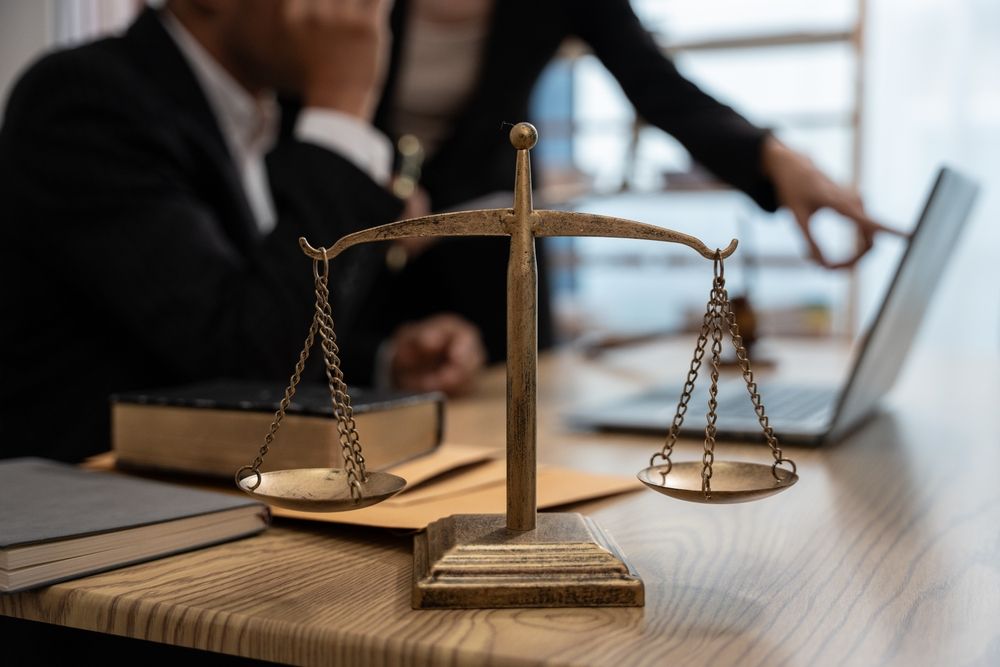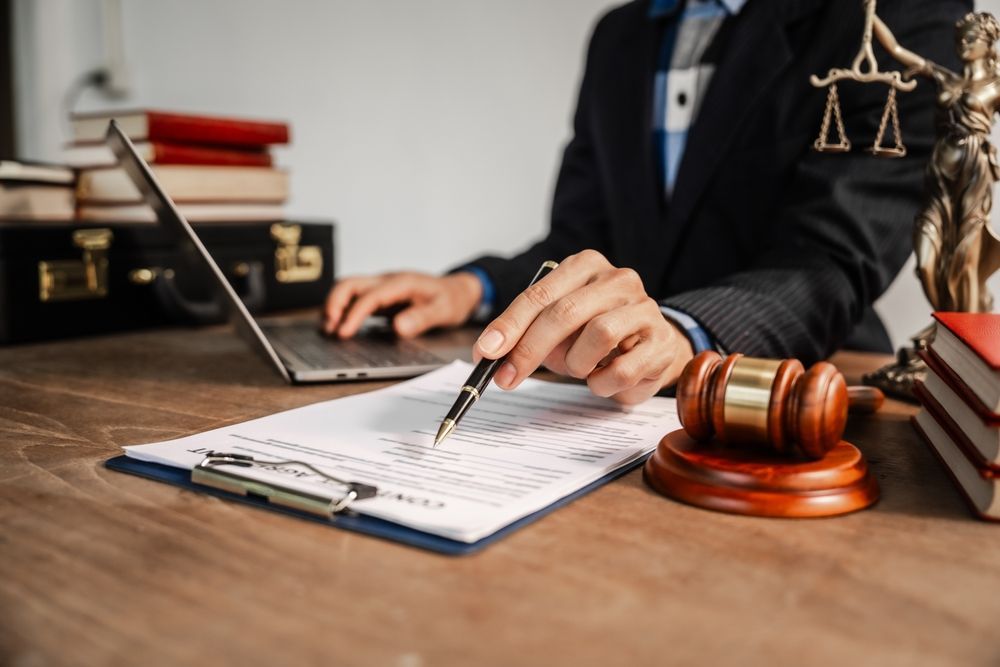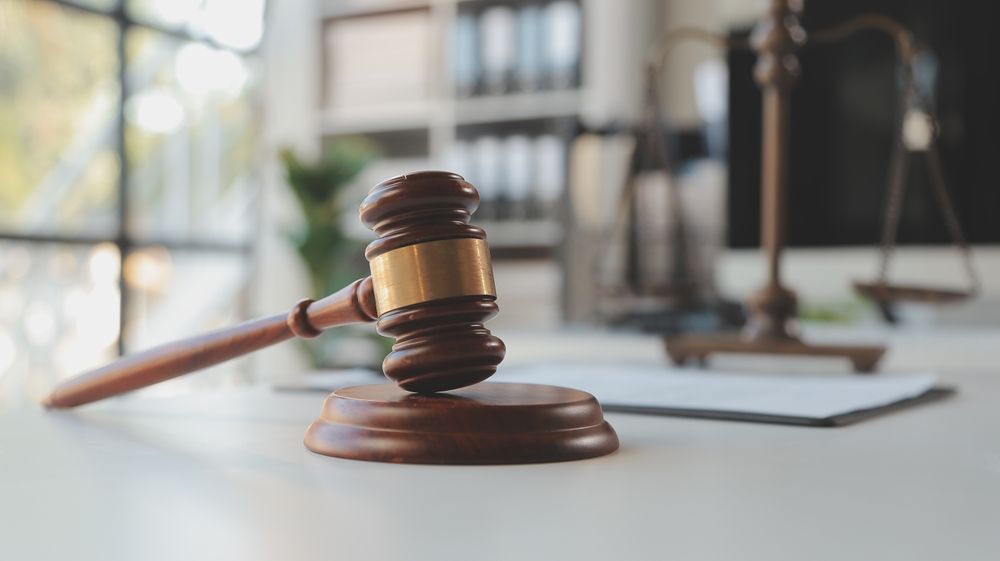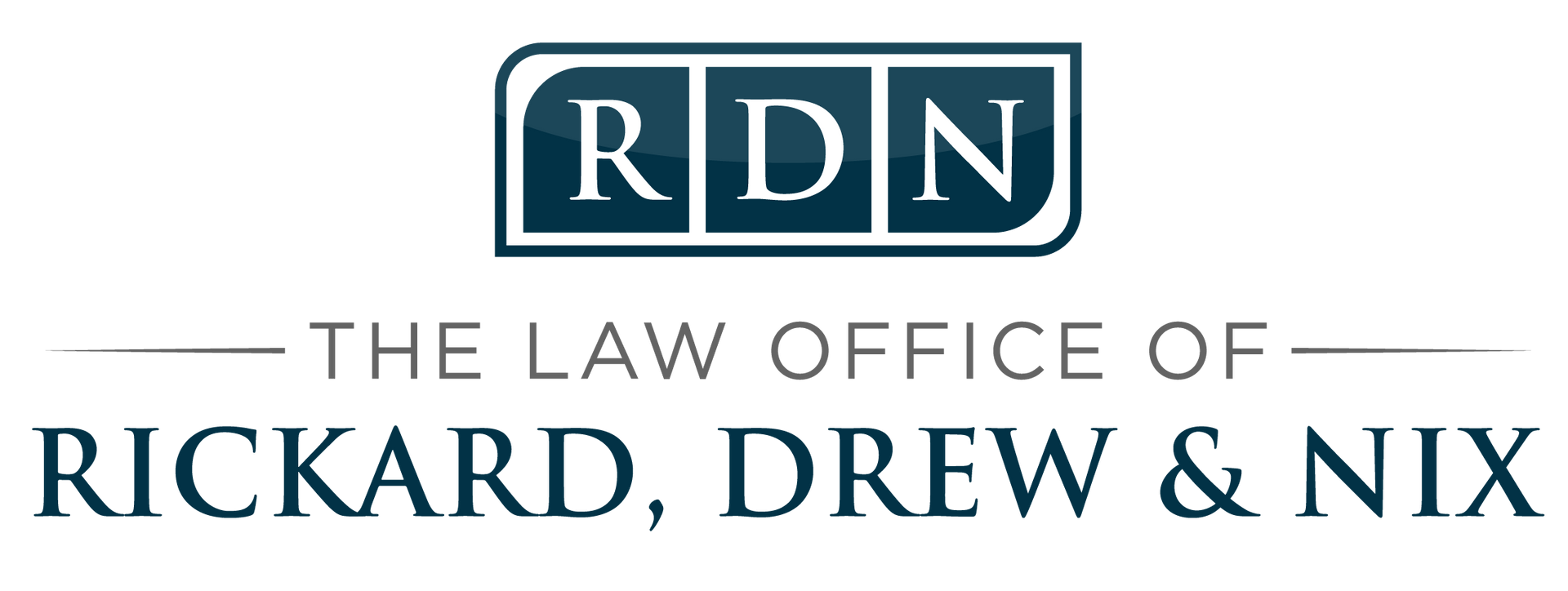Your Guide to the Car Accident Legal Process in Atlanta
Entering a situation you've never experienced before can be pretty intimidating. That's how many car accident victims feel during their first brush with the legal system. Filing an accident claim can be an enormous project, and all the "legalese" of the documents makes many feel dejected and hopeless. But claims are a must to achieve the compensation they need to recover financially. Partnering with a talented Atlanta attorney can turn those dark skies blue again.
Have you recently faced the aftermath of a car accident in downtown Atlanta? Encountering the legal process can feel overwhelming, especially when dealing with pain and suffering from injuries. This article will guide readers through the essential steps to take immediately after an accident, clarify how liability is determined, and outline the insurance claims process. By understanding these key aspects, readers will gain confidence in securing fair compensation and addressing any challenges they encounter in the aftermath of a traffic incident.
Overview of the Car Accident Legal Process in Atlanta
Understanding the car accident legal process in Atlanta involves several critical elements. Key terms and definitions relevant to car accidents, including "hit and run" incidents, play a significant role in the legal landscape. This overview addresses the phases of the legal process after an accident, emphasizing the evaluation needed to navigate these stages effectively. Furthermore, it highlights the essential role of an Atlanta car accident attorney in securing fair compensation and providing valuable knowledge throughout the process.
Key Terms and Definitions Relevant to Car Accidents
In the context of car accidents, understanding key terms is essential for effectively mastering the legal process. For instance, an "accident claim" refers to the demand for compensation for damages incurred during the incident, which can include medical expenses, lost wages, and pain and suffering. The success of an accident claim often hinges on gathering evidence, such as the testimony of a "witness," who can provide critical insights about the circumstances surrounding the accident.
Another important concept is the "car accident settlement," which is an agreement between the parties involved, typically reached before trial, to resolve the claim without further legal proceedings. Settlements can vary widely, often determined by factors such as the extent of injuries and financial losses the victim incurs, sometimes expressed as a "percentage" of the total damages sought. Moreover, while the focus usually lies on vehicle-related accidents, awareness of related incidents, such as a "dog bite," highlights the necessity for comprehensive legal knowledge to address all potential claims that may arise from various accidents.
Phases of the Legal Process After an Accident
The phases of the legal process after a car accident in Atlanta typically begin with the gathering of evidence to establish fault and diagnose injuries. During this phase, aspects such as contributory negligence may come into play, which can impact the outcome of claims. For instance, if a pedestrian is involved, the assessment of liability insurance from the at-fault party becomes vital in determining compensable damages aligned with Georgia car accident laws.
Following evidence collection, negotiations often follow where an Atlanta personal injury attorney advocates for their client's interests. This stage may involve reaching a settlement that compensates for medical bills, lost wages, and pain and suffering, all while considering the details of the specific case. Effectively managing this process allows victims to focus on recovery while making sure their rights are protected throughout the legal journey.
The Role of an Atlanta Car Accident Attorney
An Atlanta car accident attorney plays a vital role in guiding clients through the minutiae of an auto accident case. They understand the workings of local laws, including premises liability, which may apply if an accident occurs due to unsafe conditions on someone’s property. Their expertise helps guarantee that all aspects of a case, including memory reliability and potential witness testimonies, are carefully evaluated to build a strong claim for fair compensation.
Moreover, an attorney’s involvement becomes essential, particularly in cases involving serious incidents such as vehicle rollovers. By collaborating with expert witnesses who can testify about the circumstances leading to the accident, attorneys strengthen a client’s case. This support allows victims to concentrate on their recovery while knowing that their rights and interests are effectively represented in negotiations or litigation.
Steps to Take Immediately After a Car Accident
After a car accident, immediate actions can significantly impact a potential personal injury claim or car accident lawsuit. Key steps include collecting evidence at the scene to support the case, reporting the accident to authorities for documentation, and communicating with insurance companies to clarify coverage. Seeking medical attention is vital, especially for injuries like spinal cord damage, securing proper care and establishing medical records. Each action plays a critical role in a victim's recovery journey and legal standing.
Collecting Evidence at the Scene
Collecting evidence at the scene of a motor vehicle accident is crucial for establishing the facts surrounding the incident. Key pieces of evidence, such as photographs of the vehicles, damage, and relevant road conditions, help illustrate the circumstances of the crash. Additionally, obtaining contact information from witnesses can provide valuable insights into any recklessness displayed by the involved parties, which may be significant during negotiations with insurance companies or in court proceedings if the case escalates to a judge.
Victims should also document any visible injuries and gather police reports as these records support their claims. Failing to collect adequate evidence can hinder a claim, leaving them at a disadvantage when pursuing compensation. Understanding how to effectively gather this information helps individuals be better prepared to advocate for their rights and secure fair compensation in the aftermath of an accident.
Reporting the Accident to Authorities
Reporting the accident to authorities is a crucial step following a car crash, as it establishes an official record of the incident. This documentation will be essential when dealing with a claims adjuster from the insurance company, as they will rely on the police report to assess coverage under the involved parties' insurance policies. Failure to report an accident promptly may complicate claims or lead to disputes over liability, especially if the case escalates to court.
In the aftermath of an accident, victims often experience physical and emotional suffering. Therefore, it is vital to make sure that a lawyer is involved early on to help assist with the legal process and protect the victim's rights. This legal representation can assist in communicating with authorities and ensuring that all relevant information is accurately captured in the report, ultimately strengthening the victim's case for compensation.
Communicating With Insurance Companies
Effective communication with insurance companies becomes vital following a car accident. Victims should clearly convey details about the incident, such as whether the other driver was engaging in reckless driving or failing to obey the speed limit, which may impact liability assessments. It is advisable for the victim to share information about the involvement of passengers and any relevant evidence collected at the scene, such as photographs showing road conditions, the shoulder, and the position of the vehicles.
Insurance adjusters often rely heavily on these initial reports to determine coverage and compensation. Therefore, providing a thorough account helps to establish the context of the accident as recorded by the Georgia Department of Transportation. Victims must make sure all communication is documented and that they do not admit fault or provide statements that may undermine their claims; consulting with a legal professional can greatly aid in navigating these conversations effectively.
Seeking Medical Attention
Seeking medical attention immediately after a car accident is critical for getting proper treatment for injuries, which may not be immediately apparent. Establishing a medical record not only aids in the healing process but also supports any potential car accident lawsuits, providing crucial documentation of damages. Additionally, car accident victims should be aware of the statute of limitations for filing claims, as failing to seek timely medical care can affect their rights to compensation.
Transporting injured individuals to a medical facility promptly is vital to prevent further complications, especially for injuries that could worsen without immediate care. Legal professionals emphasize the importance of obtaining a full medical evaluation to accurately assess injury severity, which is a key factor in determining the compensation amount for damages. Victims who prioritize their health and seek appropriate medical treatment position themselves better in the legal process, making their health and well-being the top priority.
Understanding Liability in Car Accident Cases
Car accidents in Atlanta can stem from various common causes, significantly impacting injury claims. In Georgia, determining fault is crucial for securing financial compensation, as it influences the liability assigned in each case. Additionally, the importance of evidence cannot be overstated; it plays a vital role in establishing liability, making it essential for victims and their paralegals to gather pertinent information, including witness accounts and documentation related to any tissue injuries sustained.
Common Causes of Car Accidents in Atlanta
In metro Atlanta, the common reasons for car accidents significantly impact liability assessments. Distracted driving, often due to mobile phone use, remains a leading cause, resulting in serious injuries that may require surgery. Collecting evidence, such as police reports and witness statements, helps document these incidents, clarifying fault and enabling victims to pursue appropriate claims for compensation related to their injuries.
Another frequent reason for accidents in the area includes speeding, which reduces a driver's reaction time and increases the severity of collisions. Victims often face critical conditions like bleeding, necessitating immediate medical attention and careful documentation of their injuries. Understanding these common causes aids both victims and their legal representatives in building a strong case that reflects the realities of their situation while pursuing justice in the aftermath of an accident.
How Fault Is Determined in Georgia
In Georgia, determining fault in car accident cases is primarily based on the concept of negligence, which evaluates the actions of each party involved. The degree of liability can significantly impact the outcome of settlements and compensation related to property damage and personal injuries. For instance, if two drivers contributed to a motorcycle accident case, the courts may assign percentages of fault, influencing how much each party can recover for their damages.
When assessing fault, evidence plays a crucial role. Documentation such as police reports, witness statements, and photographs will be evaluated to establish who was negligent during the incident. Victims of car accident cases should consider seeking a free case evaluation to make sure they understand their rights and responsibilities, particularly as fault also affects how claims are processed and settled with insurance companies.
The Importance of Evidence in Establishing Liability
Evidence holds significant value in establishing liability in car accident cases, especially when pursuing a lawsuit for car accident injuries. After an incident, law enforcement typically documents vital details through reports, which can clarify the events leading up to the crash. For instance, evidence from a traffic camera may provide undeniable footage of the crash, reinforcing claims about the actions of the drivers involved.
Collecting and preserving evidence also helps victims support their claims effectively. Information gathered from witnesses and physical evidence from the highway can help demonstrate negligent behavior, which is crucial in determining fault. This documentation becomes even more crucial when negotiating with insurance companies or preparing for court, as it provides a clear narrative of what transpired, directly affecting the outcome of the case.
Navigating Insurance Claims After a Car Accident
Working insurance claims after a car accident in Atlanta requires an understanding of several key components. Georgia mandates specific types of coverage, and victims must gather the necessary documentation to file a claim effectively. Additionally, dealing with insurance adjusters requires knowledge of their behavior and tactics, ensuring that affected individuals can pursue compensation that supports their quality of life while managing potential fees.
Types of Coverage Required in Georgia
In Georgia, drivers are required to carry specific types of insurance coverage to comply with state law. The essential coverage includes liability insurance, which is necessary for car accident claims; it protects against damages to another party in the event of an accident. A typical policy will cover a certain amount for both bodily injury and property damage, ensuring that victims can seek compensation for their losses in the aftermath of an Atlanta auto accident.
Furthermore, Georgia also encourages drivers to consider optional coverages such as uninsured/underinsured motorist protection and collision coverage. Uninsured motorist coverage is vital for those who encounter drivers lacking adequate insurance, allowing claims to be filed even when the other party is undercovered. These coverages not only provide essential support during an auto accident but also align with the doctrine of making sure drivers protect themselves and their passengers, including consortium claims for loved ones affected by the accident.
Filing a Claim and Documentation Needed
Filing an insurance claim after a car accident in Atlanta necessitates gathering vital documentation to support the case. Key pieces of evidence include police reports, photographs of the scene, and medical records detailing any injuries sustained, such as disfigurement or conditions causing emotional anguish. For instance, in situations involving driving under the influence, timely and thorough documentation is critical as it strengthens the claim against the at-fault party while addressing issues of comparative negligence.
The filing process requires attention to detail when compiling these documents. Clear evidence collected from witnesses and medical professionals enhances the legitimacy of the claim and demonstrates the impact of the accident on the victim's life. This methodical approach not only aids when dealing with the insurance company but also assures that all necessary information is presented, ultimately helping injured parties secure fair compensation for their hardships.
Dealing With Insurance Adjusters
Dealing with insurance adjusters requires a clear understanding of the legal process following a car accident. Adjusters often aim to minimize payouts, making it vital for victims to remain prepared and informed. For instance, when discussing soft tissue injuries, victims should be ready to present thorough documentation and medical testimony that supports their claims, illustrating how these injuries impact their daily employment and overall quality of life.
Victims must also recognize the importance of not admitting fault during conversations with insurance adjusters. A well-prepared individual can effectively articulate their perspective and emphasize the necessary details regarding the accident, including any eyewitness accounts that may serve as vital testimony. This proactive approach can help ensure the adjusters fairly evaluate the case and enhance the chances of receiving adequate compensation for damages inflicted during the accident.
The Role of the Court System in Car Accident Cases
The court system plays a critical role in car accident cases in Atlanta. Understanding the overview of civil court procedures is essential for victims seeking justice. This section will discuss what to expect during a court hearing, emphasizing the significance of legal representation, especially for cases involving issues like drunk driving or drowsy driving. A personal injury lawyer can provide vital legal advice to work through these situations effectively.
Overview of Civil Court Procedures
The civil court procedures for accident claims in Atlanta begin when the injured party files a complaint, laying the groundwork for the case. This initial step includes citing relevant statutes that establish liability and outlines the basis of the claim, whether it involves a truck accident or product liability issues. Understanding these procedures is crucial, as they dictate the timeline for the case and the necessary documentation required to substantiate the claims and associated expenses.
Throughout the court process, both parties present evidence, including witness testimonies and accident reports, to support their position. A key aspect of these proceedings is the discovery phase, where both sides exchange information to prepare for trial. This stage is essential, as it can influence the outcome based on the strength of the evidence presented, ultimately affecting the compensation awarded to the victim in cases involving negligence or liability.
What to Expect During a Court Hearing
During a court hearing related to car accidents in Atlanta, parties present their case before a judge, highlighting evidence such as witness testimonies, accident reports, and medical records. This process allows each side to argue their perspective, demonstrating the impact of the accident on the victim's wage and overall well-being. The risk of reputational damage must also be considered, as both plaintiffs and defendants must advocate clearly to maintain credibility during proceedings.
The hearing typically involves questioning witnesses and reviewing all submitted evidence, which aids the court in determining liability for the accident. For instance, when addressing the circumstances of the accident, the judge assesses the validity of claims regarding injuries and financial losses. This structured environment ensures that all factors surrounding the accidents are thoroughly evaluated, guiding the court toward a fair resolution.
The Importance of Legal Representation in Court
Legal representation is essential in car accident cases, particularly when addressing factors such as aggressive driving or situations involving intentional infliction of emotional distress. A skilled attorney understands how to present evidence effectively, drawing attention to key factors that may support claims for punitive damages. Their expertise can significantly impact the outcome, making sure that victims receive the compensation they deserve for both tangible and intangible losses.
Moreover, having an attorney who is familiar with local court procedures can prevent critical errors during the legal process. For instance, they can assist in coordinating with physicians to document injuries properly, which is vital for substantiating claims. This strategic alignment ensures that clients are well-prepared for court hearings, ultimately increasing their chances of a favorable resolution in their case.
Frequently Asked Questions About Car Accident Legal Processes in Atlanta
This section addresses common inquiries regarding the car accident legal process in Atlanta, including crucial timelines for filing a car accident claim and the types of damages that can be recovered. Additionally, it explores scenarios where compensation may still be obtained if the claimant shares partial fault and discusses the procedures involved if a settlement cannot be reached, including the potential for a verdict in court. Understanding these elements helps individuals understand their legal options.
How Long Do I Have to File a Claim?
In Georgia, individuals involved in car accidents have a limited time frame to file a claim. Generally, the statute of limitations for personal injury claims is two years from the date of the accident. For example, if an accident occurs on Peachtree Street and a victim suffers injuries such as internal bleeding or requires medication, it is crucial to initiate the legal process promptly to secure the right to compensation.
If the case involves texting while driving, establishing liability becomes more critical since negligence is a factor in these accidents. Victims who miss the filing deadline for their claim may find themselves without recourse, even if the circumstances justify a trial for damages. Therefore, understanding these time constraints helps victims take timely action in pursuing their rights following a car accident.
What Damages Can I Recover?
Victims of auto accidents in Atlanta can seek various forms of damages through personal injury law, aimed at compensating for losses incurred. This may include medical expenses, lost income, and pain and suffering resulting from the accident. If the accident involved a rideshare service like Lyft, it is essential to include specific losses associated with that service, making sure all financial and emotional impacts are accounted for in the claim.
In determining what damages can be recovered, victims should consider long-term consequences on their quality of life, including ongoing medical treatment or rehabilitation costs. Legal representation can help navigate these complexities, effectively assessing all available assets and losses related to the accident. Understanding the full scope of recoverable damages under Atlanta law empowers victims to fight for the compensation they rightly deserve.
Can I Still Recover Compensation if I Was Partially at Fault?
In Georgia, the principle of comparative negligence allows a plaintiff to recover compensation even if they are partially at fault for a car accident. For example, if a driver changes lanes unsafely and causes a collision while the other driver was speeding, both parties may share liability. As long as the plaintiff's level of fault does not exceed 49%, they can still seek damages for injuries, stress, and distress suffered from the incident.
The compensation awarded will be adjusted based on the degree of causation contributed by each party. If the plaintiff is found to be 20% at fault, their compensation for medical expenses and other damages will be reduced by that percentage. Understanding this legal framework can help individuals survive the aftermath of an accident, providing clarity on how to address their legal rights effectively.
What Happens if a Settlement Cannot Be Reached?
If a settlement cannot be reached in a car accident case, the injured party may proceed to file a lawsuit. This next step involves presenting their case in court, where evidence, including details about property damage and the deployment of airbags, will be crucial in establishing fault and liability. The judicial process allows the victim to seek fair compensation, potentially covering expenses like medical bills and loss of consortium resulting from the accident.
During litigation, both parties will have an opportunity to present their arguments. The court will evaluate the evidence, including testimonies and accident reports, to determine who is liable for damages. If the judge or jury rules in favor of the victim, they may receive compensation reflective of the injuries and financial losses sustained, reinforcing the importance of adequate legal representation throughout the process.

Attorney Jessica Nix, Managing Partner
Jessica Nix is Managing Partner and a Personal Injury Attorney at the Law Office of Rickard, Drew & Nix in Atlanta, with more than 10 years of experience representing injury victims in courts across Metro Atlanta. She graduated cum laude from the University of Georgia School of Law, where she served as an editor of the Journal of Intellectual Property Law. Jessica is admitted to the State Bar of Georgia, is a member of the Georgia Trial Lawyers Association, and was named a Georgia Super Lawyers Rising Star for Personal Injury from 2017 to 2019. To speak with the Law Office of Rickard, Drew & Nix, schedule a free consultation today.



